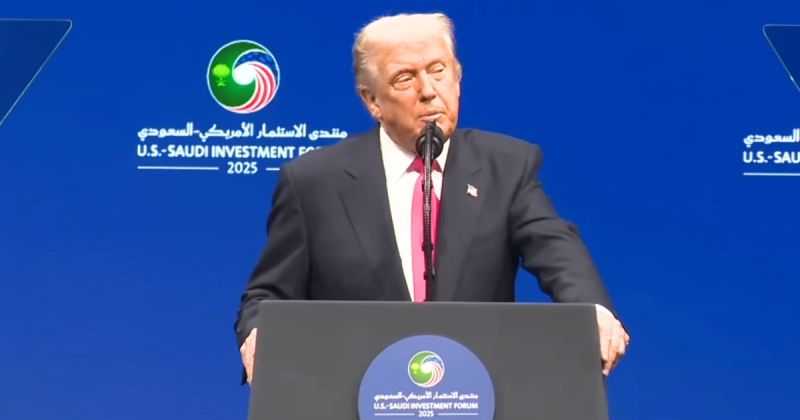President Donald Trump has confirmed plans to formally designate the Muslim Brotherhood as a foreign terrorist organization, signaling a major shift in U.S. counterterrorism policy.
“It will be done in the strongest and most powerful terms,” Trump told Just the News Sunday. “Final documents are being drawn.”
The announcement comes amid growing pressure from lawmakers and state officials to take decisive action against a group long accused of fostering extremism abroad.
Texas Gov. Greg Abbott recently labeled both the Muslim Brotherhood and the Council on American-Islamic Relations (CAIR) as foreign terrorist and transnational criminal organizations.
Abbott claimed the groups seek to impose Sharia law and undermine legal systems through intimidation and violence.
CAIR has denied the allegations and filed a lawsuit asserting that the designations violate constitutional property and free speech protections.
Federal lawmakers have also weighed in. Texas Sen. Ted Cruz (R) described the Brotherhood as a terrorist organization with links to Hamas, which he noted carried out attacks on Oct. 7 resulting in the deaths and kidnappings of dozens of Americans.
Cruz and other Republican leaders argue the United States should follow allied nations that have already labeled the Brotherhood a terrorist organization.
The Muslim Brotherhood, founded in 1928 in Egypt by Hassan al-Banna, has historically sought to establish a caliphate governed by Sharia law.
Its ideology has influenced modern jihadist figures, including Osama bin Laden and Ayman al-Zawahiri, as well as terrorist groups such as Hamas, Egyptian Islamic Jihad and Palestinian Islamic Jihad.
Think tanks warn that even branches in the West, though less violent, share the group’s fundamental ideological framework.
Secretary of State Marco Rubio has previously indicated that a federal designation is under consideration, noting that careful review is required because the Brotherhood operates numerous branches and affiliates worldwide.
Several Middle Eastern countries, including Egypt, Jordan, Saudi Arabia, the UAE and Bahrain, have already banned the group or classified it as a terrorist organization.
In addition, criminal and intelligence experts argue that a terrorist designation would allow the U.S. to freeze assets, restrict travel and target international branches engaged in criminal activity.
The Institute for the Study of Global Antisemitism and Policy described the Brotherhood as a guiding force behind contemporary Islamist groups such as ISIS, al-Qaeda and Hamas.
Similarly, the Foundation for Defense of Democracies highlights the Brotherhood’s ideology as a “gateway to terrorism,” even if some affiliates reject violence locally.
Abbott has directed the Texas Department of Public Safety to launch criminal investigations aimed at identifying and disrupting terrorist activities within the state.
“We will target threats of violence, intimidation, and harassment of our citizens,” Abbott said, emphasizing that both groups’ actions are unacceptable.
The investigations are expected to focus on both operational support for terrorism and unlawful attempts to impose Sharia law within Texas.
Experts predict that Trump’s forthcoming designation could draw both domestic and international attention, with potential repercussions for U.S. counterterrorism operations.
Lawmakers argue the step is necessary to align American policy with allied nations and to prevent funding or operational support for branches engaged in extremist activities abroad.
A federal designation would mark one of the most consequential moves against Islamist networks in recent years, reshaping how the U.S. addresses transnational ideological threats.
Both Trump and Republican officials maintain that the measure is an essential part of national security strategy, signaling a renewed focus on combating global terrorism at its ideological roots.
International observers are expected to monitor how allies and Muslim-majority countries respond to the designation.

